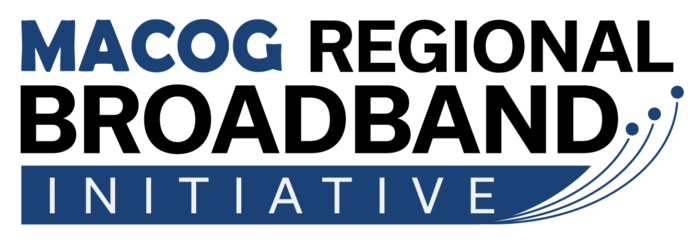Throughout 2020 it has become increasingly obvious that broadband is vital in our everyday life and no longer just a nice to have. It is essential for schoolwork, doctor’s appointments, ecommerce, or work. However, there are many underserved parts of the region where internet speeds are too slow, unreliable, non-existent, or unaffordable. But exactly how many people face this problem in the region? Where do they live? And what technology could work best to connect them?
To answer these questions, MACOG is conducting a broadband survey for all residents in Elkhart, Kosciusko, Marshall, and St. Joseph Counties through July 16. You can take the survey and speed test at www.macog.com/broadband
The survey is conducted in partnership with the Purdue Center for Regional Development. It is designed to study usage, actual internet speeds, opportunities, and lack of access throughout the region.
“Before we can tackle a challenge, we need a road map and resources that show us where needs are and how we can fill the gaps,” said Dr. Roberto Gallardo, Director of the Purdue Center for Regional Development. “This survey and the work that MACOG is doing can provide the technical assistance that will help local communities develop or implement their plans to address broadband and digital exclusion.”
Participants are asked to take the online survey at home so they can test actual internet upload and download speeds. The survey captures data using the Indiana Speed Test, which is a crowd-sourced internet speed test created by Geo Partners, LLC and sponsored by the Indiana Broadband Strategic Partnership including Indiana Farm Bureau, Cook Medical Group, Duke Energy Foundation, Indiana Realtors, Radius Indiana and the Regional Opportunity Initiative.
“As local communities are trying to apply for state or federal grants, a major hurdle to the applications have been the data that they had to support those grant applications. We, as a partnership, are interested in this information being available to decision-makers, so that they can provide the service that their citizens need,” said Indiana Farm Bureau Senior Director of Policy Strategy, Katrina Hall. “We hope that this information will also provide the data necessary to make wise investments.”
Participants are also asked to opt in to a mapping portion of the survey to help create a region-wide map of broadband service.
“Access to high-speed broadband is essential for success in today’s economy,” said Mayor James Mueller. “As we look to expand access and opportunity, we need help from our residents to direct resources where they are needed most.”
The entire survey takes about five minutes to complete. In the first week, nearly 400 households have taken the survey and speed test.
“We know that there are areas in our region that lack access to internet options. If you’re not connected, if you’re on the wrong side of the broadband divide, you’re going to have a difficult time doing business, educating children and growing the economy,” said Jeremy Stutsman, Mayor of Goshen and MACOG Policy Board Chair. “This survey and speed test will help us identify areas of the region that are currently underserved.”
In the 2021 legislative session, the Indiana General Assembly appropriated $250 million from federal ARPA funds to be awarded via the Next Level Connections grant program. They also raised the minimum speed for grant applications recognizing that the broader issue in Indiana is underserved households. Federal funding for broadband will also be increasing in the next few years thanks to the CARES Act, ARP Act, FCC grants and a possible infrastructure bill.
“State and federal programs are increasing their investments in broadband because efficient, reliable, and easily-accessible broadband services are essential. This survey and speed test can help our region better access those funds to help move us forward,” said James Turnwald, Executive Director of MACOG.
You can take the survey and speed test through July 16 by going to www.macog.com/broadband





